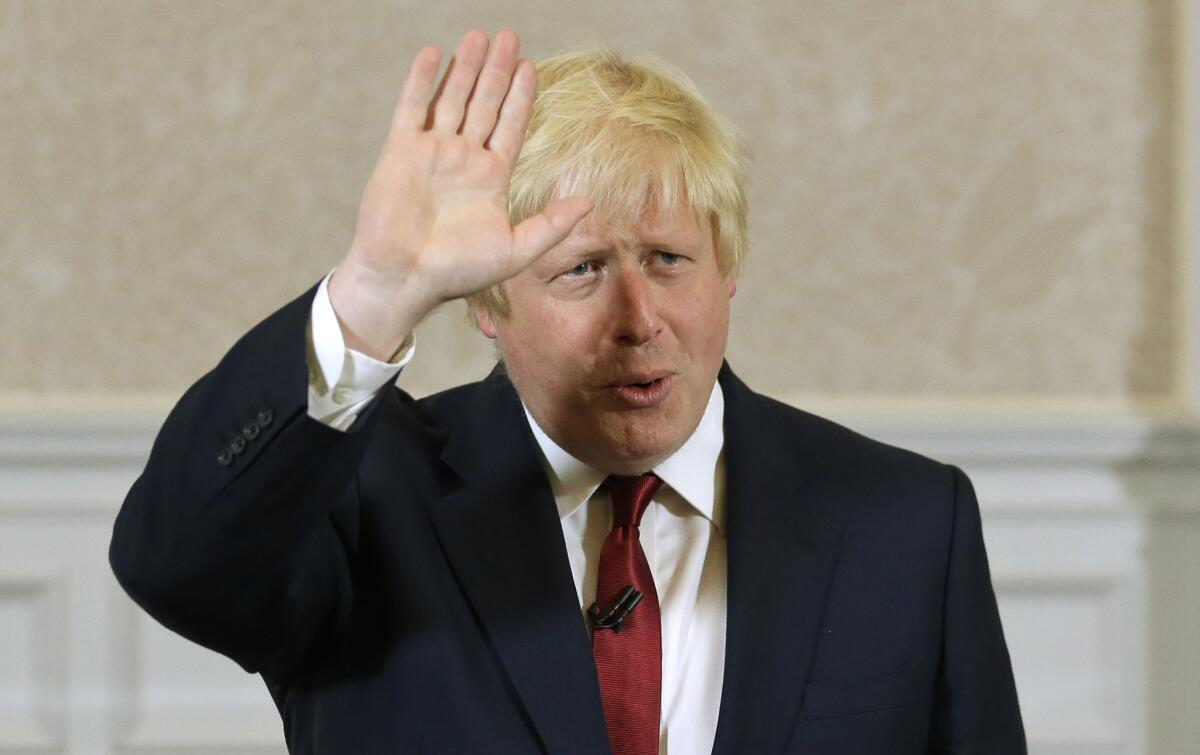Boris Johnson’s Brexit deal makes the best of what’s still a terrible idea

- Share via
British Prime Minister Boris Johnson has confounded his critics by reaching a last-minute agreement with the European Union on the terms of the United Kingdom’s departure from the EU. The agreement mostly tracks an earlier Brexit deal negotiated with the EU by former Prime Minister Theresa May, with new language on the contentious issue of how Brexit will affect relations between Northern Ireland and Ireland.
But even if this latest version of Brexit clears the remaining political hurdles — and that’s far from assured — any celebration must be muted. The best that can be said of the agreement is that it will contain the damage from a decision that deserves to completely reversed.
We refer to the June 2016 referendum in which almost 52% of voters in the U.K. agreed to withdraw from the EU with little understanding of how difficult it would be to disentangle the British economy from that of much of the rest of Europe. Even if this agreement goes into effect, negotiators for the U.K. and the EU must continue to haggle over the terms of future trade relations.
“Leave” voters were even more heedless of the implications of Brexit for the peace process in Northern Ireland, where more than 3,600 people were killed in sectarian violence over three decades. The so-called “Troubles” ended with the 1998 Good Friday Agreement, negotiated with the assistance of the United States. It emphasized cross-border cooperation between the independent Republic of Ireland and Northern Ireland, which is part of the United Kingdom.
That goal was easy to achieve because Ireland and the U.K. were both members of the EU. But Brexit has threatened to return a “hard border” between the two parts of Ireland, stoking resentment among Catholics in the north (many of whom regard themselves as Irish, not British) and raising the possibility of new violence.
Like the previous agreement negotiated by May, the deal between Johnson and the EU rightly seeks to avoid a “hard border” between the two parts of Ireland. It contemplates an arrangement in which Northern Ireland will remain within the EU‘s single market for goods, making border checks unnecessary. That’s a sensible approach, but because it would treat Northern Ireland differently from the rest of the U.K., it is opposed by some Brexit supporters and by the Democratic Unionist Party in Northern Ireland.
Parliament is expected in a rare Saturday session to vote not only on the agreement Johnson negotiated but on amendments that could result in a second referendum. Undoing Brexit entirely remains the longest of long shots, but it would be the best course. That is clear from the agonies the U.K. has experienced in trying to implement the “simple” result of the disastrous 2016 vote.
More to Read
A cure for the common opinion
Get thought-provoking perspectives with our weekly newsletter.
You may occasionally receive promotional content from the Los Angeles Times.









